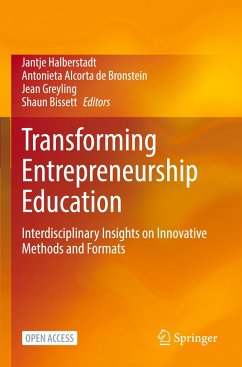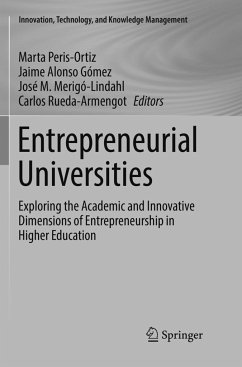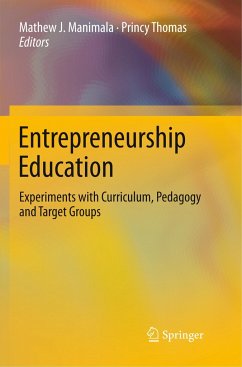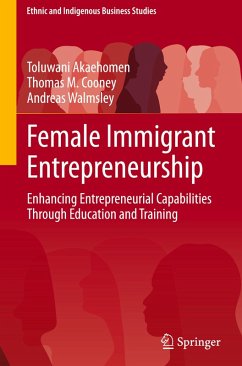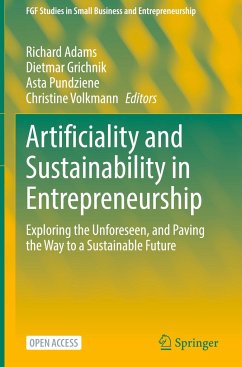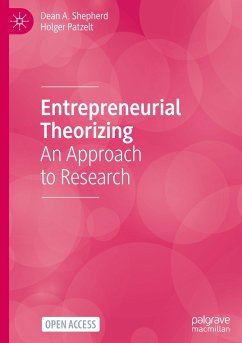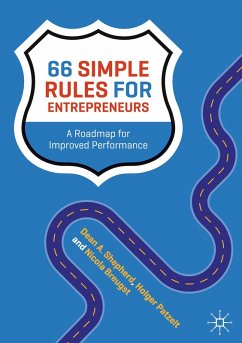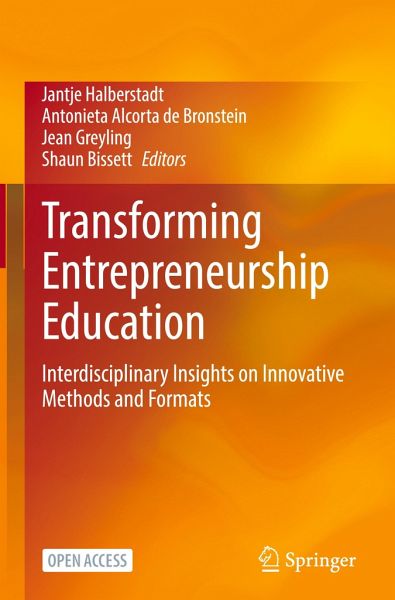
Transforming Entrepreneurship Education
Interdisciplinary Insights on Innovative Methods and Formats
Herausgegeben: Halberstadt, Jantje; Alcorta de Bronstein, Antonieta; Greyling, Jean; Bissett, Shaun
Versandkostenfrei!
Versandfertig in 6-10 Tagen
38,99 €
inkl. MwSt.

PAYBACK Punkte
19 °P sammeln!
This open access book provides selected teaching approaches, supporting methods, concrete examples of curricula as well as extracurricular teaching formats, which are predominantly tailored to both African and German requirements. These approaches were developed by the YEEES Training and Research Centers, an international interdisciplinary network of university teachers and researchers from Germany and southern Africa, and combine the fields of management, entrepreneurship, information and communication technologies (ICT), and sustainability. The book shows how current scientific results can b...
This open access book provides selected teaching approaches, supporting methods, concrete examples of curricula as well as extracurricular teaching formats, which are predominantly tailored to both African and German requirements. These approaches were developed by the YEEES Training and Research Centers, an international interdisciplinary network of university teachers and researchers from Germany and southern Africa, and combine the fields of management, entrepreneurship, information and communication technologies (ICT), and sustainability. The book shows how current scientific results can be integrated into teaching, how students can contribute to research while learning, and how research can contribute to the development and evaluation of new formats. It is thus relevant for university teachers, researchers, students as well as practitioners who want to educate and act as future change agents.





